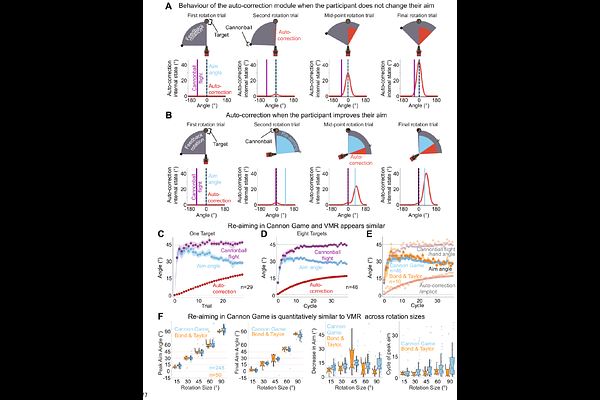An 'Aha!' moment precedes the strategic response to a visuomotor rotation

An 'Aha!' moment precedes the strategic response to a visuomotor rotation
Townsend, M.; Warburton, M.; Campagnoli, C.; Mon-Williams, M.; Mushtaq, F.; Morehead, J. R.
AbstractStrategic behaviour in sensorimotor adaptation tasks is typically modelled either as an error minimisation process or as a process of learning through trial-and-error. The former predicts a gradual reduction in error, until some asymptote, while the latter predicts behavioural exploration to discover an efficacious solution. An alternative explanation is that a sufficiently rich understanding of the task culminates in an \'Aha!\' moment, which then allows the generation of a new solution. This predicts some period of perseveration in baseline behaviour, followed by an abrupt single-trial shift to a new strategic solution. To avoid obfuscation caused by the motor system, we investigate these hypotheses in a strategy-only aiming game, where participants aim and fire a cannon at targets. Most participants exhibited a period of baseline perseveration followed by a single-trial shift to good performance. We then applied the same analyses to reaching data from a visuomotor rotation task that inhibited implicit adaptation through delaying feedback presentation (Brudner et al., 2016). Similarly, we found that participants typically perseverated in reaching towards the target before suddenly switching, in a single trial, to good performance. These findings suggest that traditional descriptions of strategic behaviour are insufficient and must be updated if we want to understand how humans respond to sensorimotor perturbations.